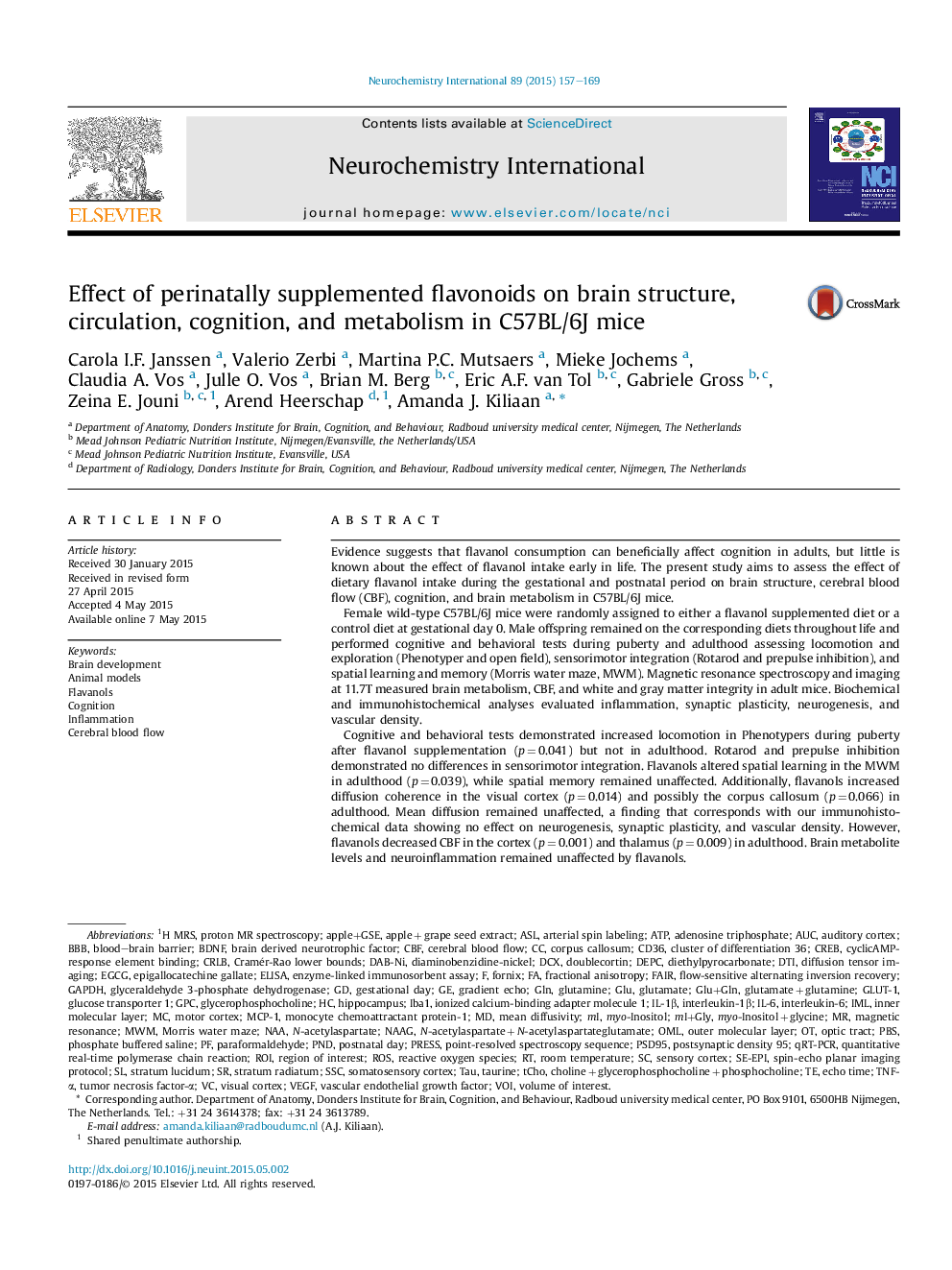| Article ID | Journal | Published Year | Pages | File Type |
|---|---|---|---|---|
| 2200393 | Neurochemistry International | 2015 | 13 Pages |
•Dietary flavanols increase locomotion during early development in pubertal mice.•Dietary flavanol supplementation alters spatial learning in young adult mice.•Dietary flavanols decrease CBF in the thalamus and cortex of young adult mice.
Evidence suggests that flavanol consumption can beneficially affect cognition in adults, but little is known about the effect of flavanol intake early in life. The present study aims to assess the effect of dietary flavanol intake during the gestational and postnatal period on brain structure, cerebral blood flow (CBF), cognition, and brain metabolism in C57BL/6J mice.Female wild-type C57BL/6J mice were randomly assigned to either a flavanol supplemented diet or a control diet at gestational day 0. Male offspring remained on the corresponding diets throughout life and performed cognitive and behavioral tests during puberty and adulthood assessing locomotion and exploration (Phenotyper and open field), sensorimotor integration (Rotarod and prepulse inhibition), and spatial learning and memory (Morris water maze, MWM). Magnetic resonance spectroscopy and imaging at 11.7T measured brain metabolism, CBF, and white and gray matter integrity in adult mice. Biochemical and immunohistochemical analyses evaluated inflammation, synaptic plasticity, neurogenesis, and vascular density.Cognitive and behavioral tests demonstrated increased locomotion in Phenotypers during puberty after flavanol supplementation (p = 0.041) but not in adulthood. Rotarod and prepulse inhibition demonstrated no differences in sensorimotor integration. Flavanols altered spatial learning in the MWM in adulthood (p = 0.039), while spatial memory remained unaffected. Additionally, flavanols increased diffusion coherence in the visual cortex (p = 0.014) and possibly the corpus callosum (p = 0.066) in adulthood. Mean diffusion remained unaffected, a finding that corresponds with our immunohistochemical data showing no effect on neurogenesis, synaptic plasticity, and vascular density. However, flavanols decreased CBF in the cortex (p = 0.001) and thalamus (p = 0.009) in adulthood. Brain metabolite levels and neuroinflammation remained unaffected by flavanols.These data suggest that dietary flavanols results in subtle alterations in brain structure, locomotor activity and spatial learning. Comparison of these data to published findings in aging or neurodegeneration suggests that benefits of dietary flavanols may increase with advancing age and in disease.
